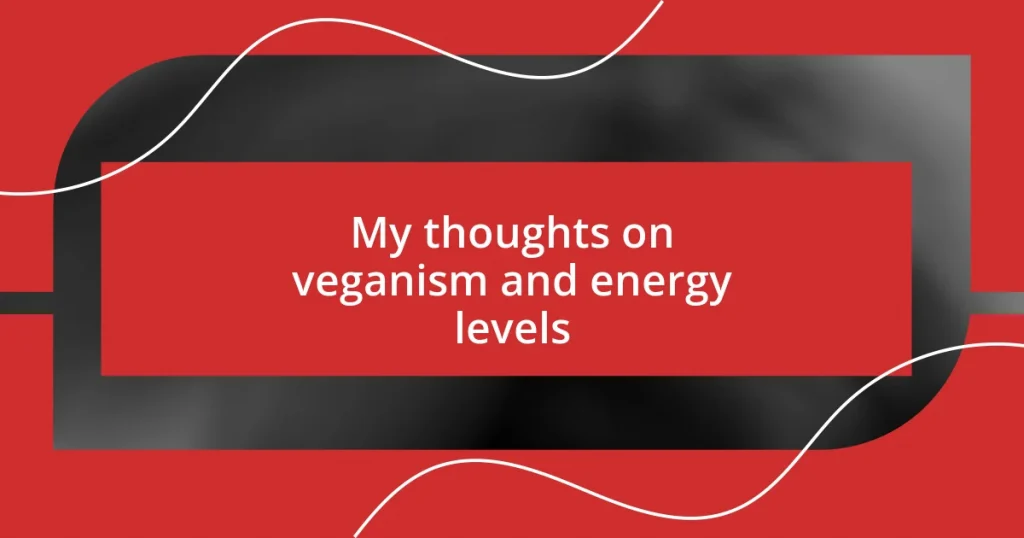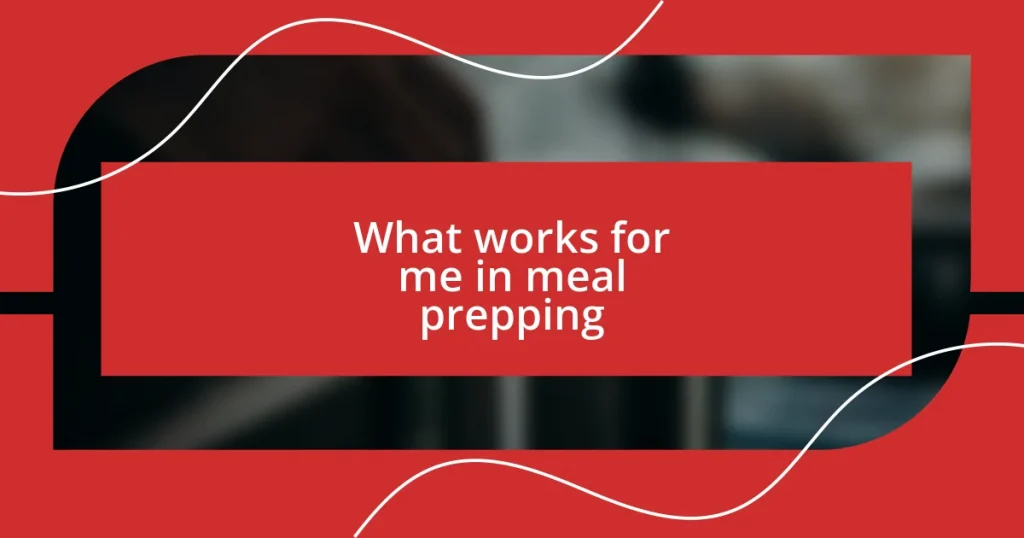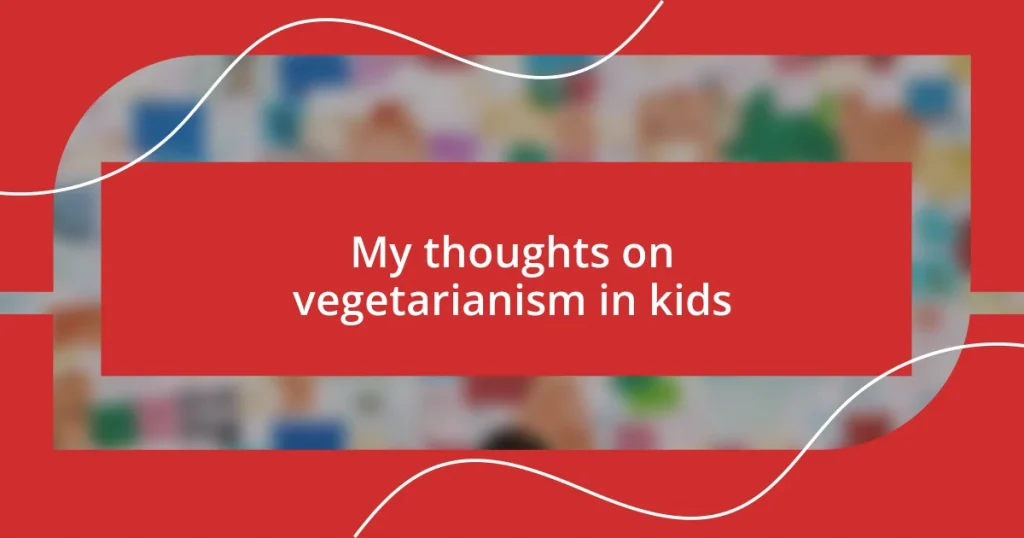Key takeaways:
- Transitioning to a vegan diet can increase energy levels through better food choices, emphasizing fruits, vegetables, whole grains, proteins, and healthy fats.
- Common pitfalls in veganism include inadequate protein intake, reliance on processed options, neglecting micronutrients, poor hydration, and imbalanced meals.
- Incorporating variety in meals, snacking wisely with homemade options, and regular physical activity are effective strategies for maintaining high energy levels.
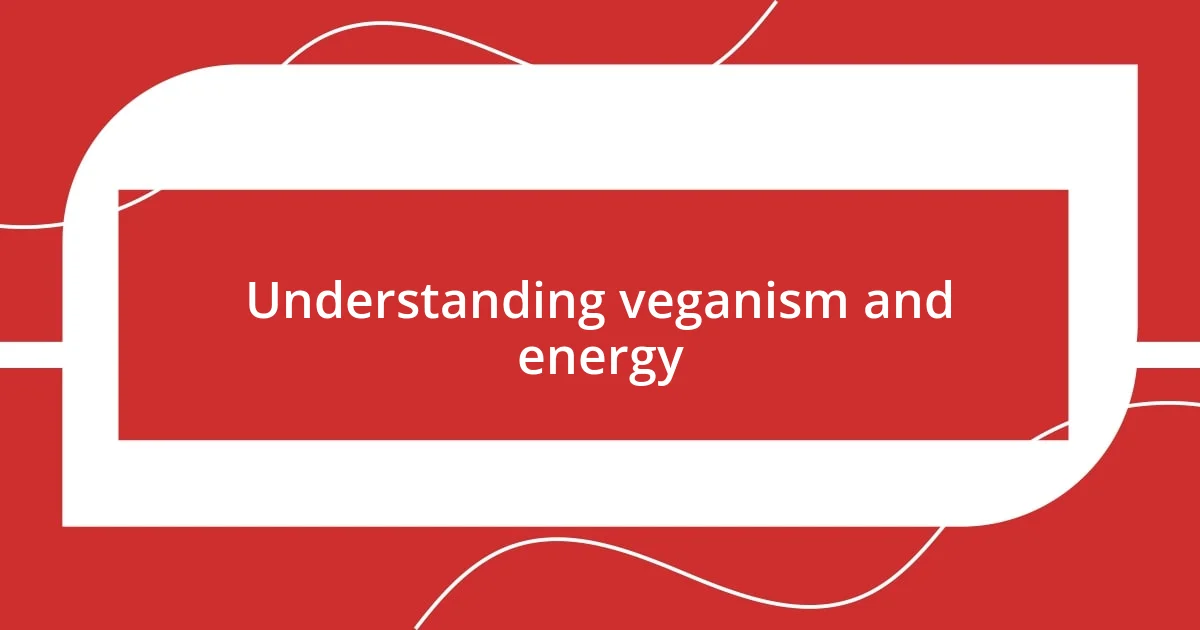
Understanding veganism and energy
When I transitioned to a vegan diet, I noticed an immediate change in my energy levels. At first, I was a bit apprehensive, wondering if giving up animal products would leave me feeling drained. But surprisingly, I felt lighter and more invigorated, likely because I was eating more fruits and vegetables that fueled my body with vitamins and minerals.
It’s fascinating to consider how energy is closely tied to what we consume. Have you ever felt sluggish after a heavy meal? That’s something I experienced often when eating heavy, meat-based dishes. Shifting to plant-based meals helped me avoid that lethargy and made me more aware of how certain foods can impact my overall vitality.
Another point to explore is the importance of balance in a vegan diet. While I enjoyed my newfound zest, I also realized the necessity of incorporating a variety of foods to meet my nutritional needs. I often reflect on the times I overlooked essential nutrients—like iron or protein—and how that affected my energy levels. It’s a learning journey, but understanding the connection between what I eat and how I feel has been key in maintaining high energy throughout the day.
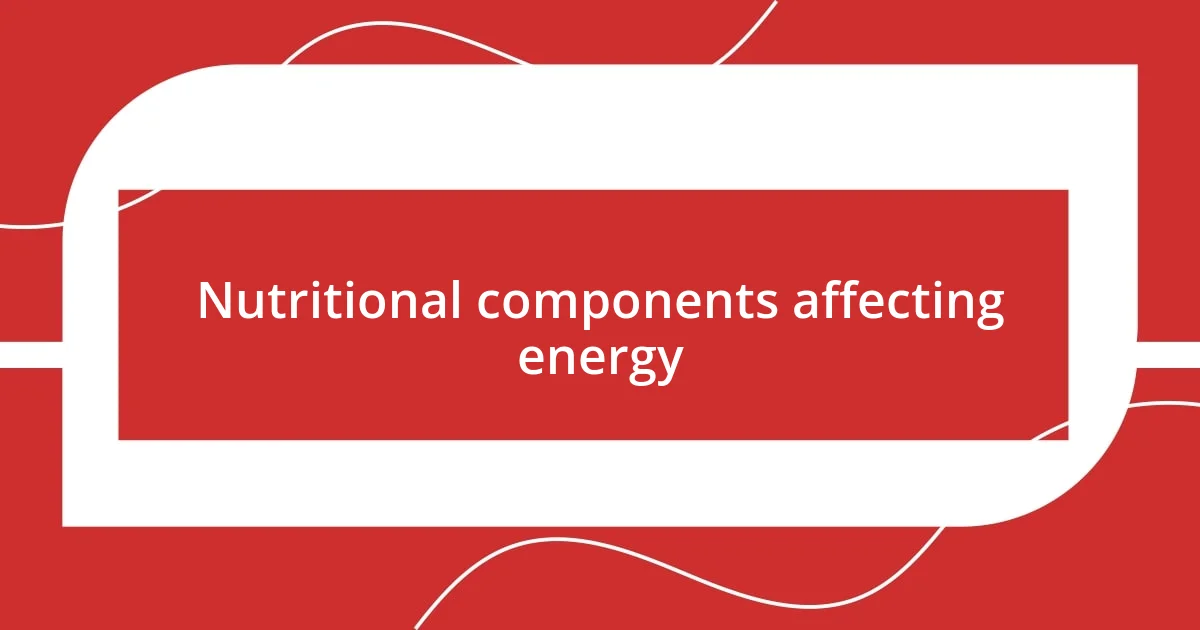
Nutritional components affecting energy
Nutritional components play a crucial role in shaping our energy levels. For instance, carbohydrates are the body’s primary source of energy. I remember when I first switched to whole grains, such as quinoa and brown rice. The difference was palpable. Instead of the post-lunch slump I typically faced, I found myself more energetic and focused. It’s intriguing how the quality of carbohydrates can truly influence our vitality.
Protein is another component that’s often overlooked in the energy equation. When I became more mindful of including various plant-based proteins, like lentils and chickpeas, my energy soared. I used to feel a bit lethargic after meals, but with adequate protein, meals felt more satisfying, keeping that sluggish feeling at bay. How often do we think about our protein sources? They truly become a powerful ally for sustaining energy throughout the day.
Lastly, let’s not underestimate the importance of healthy fats. They not only help with nutrient absorption but also provide a sustained energy source. I started incorporating avocados and nuts into my meals, and I was shocked by how much more alert I felt. The combination of the right fats, proteins, and carbohydrates transforms energy levels in ways that are astonishing. It’s all about balance, isn’t it?
| Nutritional Component | Effect on Energy Levels |
|---|---|
| Carbohydrates | Primary energy source; greater satisfaction from whole grains enhances focus. |
| Protein | Reduces sluggishness; satisfying meals keep energy levels stable. |
| Healthy Fats | Provide sustained energy; improves nutrient absorption, enhancing overall vitality. |
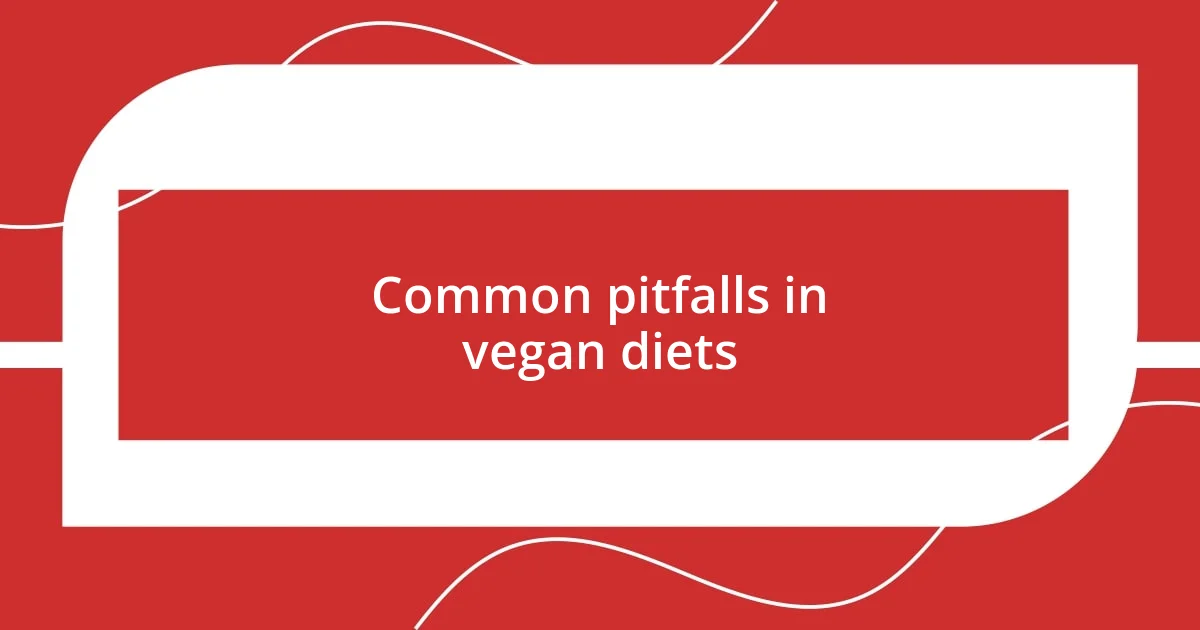
Common pitfalls in vegan diets
It’s easy to overlook certain aspects when adopting a vegan diet, and that can lead to pitfalls. There were times I found myself craving comfort foods, which often contained hidden sugars or processed ingredients. I felt great about being vegan, yet my energy began to dip when I relied too heavily on these foods. It was a wake-up call to truly examine my choices and make conscious decisions about what went into my meals.
Here are some common pitfalls to watch out for:
- Inadequate Protein: Not incorporating enough plant-based proteins can lead to feelings of fatigue, resembling the sluggishness I experienced early on.
- Skipping Whole Foods: Relying on processed vegan options can undermine health. I learned this the hard way when I reached for quick snacks instead of fresh produce.
- Neglecting Micronutrients: Missing out on vital minerals like iron and vitamin B12 can significantly affect energy levels. Reflecting on my own journey, I remember feeling drained until I started including fortified foods and supplements.
- Overlooking Hydration: Staying hydrated is critical, something I sometimes forgot in my busy routine, leading to unexpected weariness.
- Imbalanced Meals: Just like any diet, a vegan one requires balance. Once I began ensuring each meal included protein, healthy fats, and complex carbs, my energy stabilized and even thrived.
Being mindful and intentional about each choice is what ultimately empowered my vegan experience. It took some effort, but now I feel like I’ve hit my stride, embracing the vibrancy that a well-rounded vegan diet can provide.
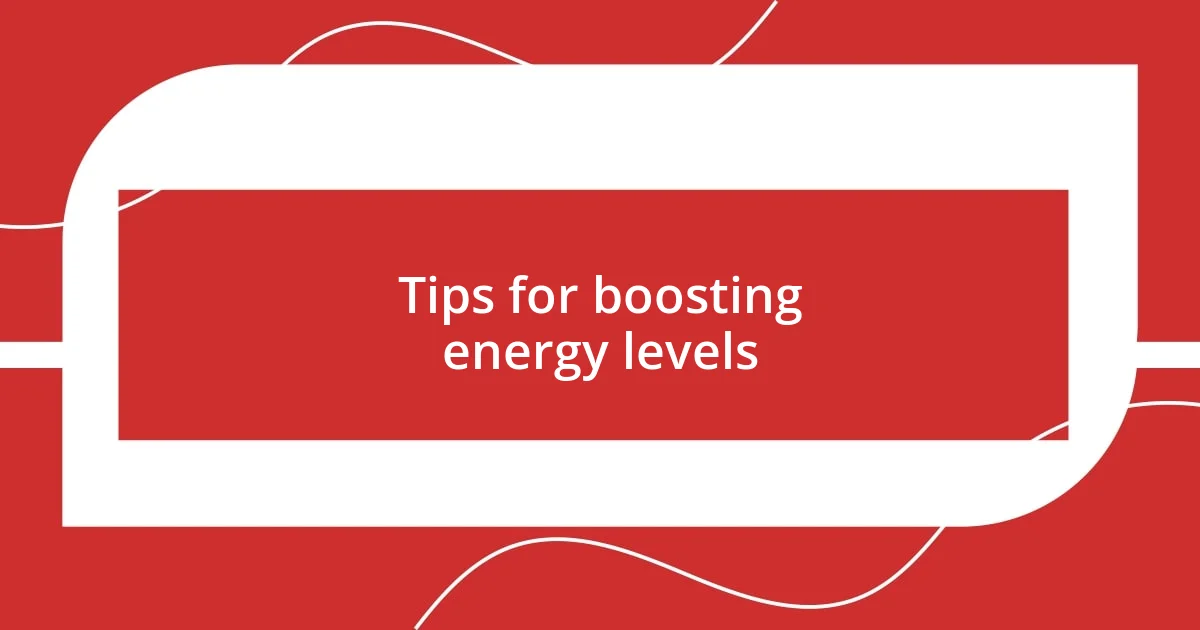
Tips for boosting energy levels
Mixing up your meals can make a world of difference. I found that rotating my grain choices, like swapping quinoa for millet, keeps my meals exciting and energizing. Ever notice how a simple change can revitalize your taste buds and your energy?
Another tip that worked wonders for me was snacking smart. Instead of reaching for generic energy bars, I started making my own with oats, nut butter, and a touch of maple syrup. The satisfaction of a homemade snack left me feeling more energized without the crash that so many processed options brought on. What do you usually grab for a quick snack?
Lastly, I can’t emphasize enough the importance of regular movement. On days when I felt drained, a brisk walk or some light stretching turned my mood around. It’s remarkable how shifting from the desk to a little activity can invigorate your body and spark mental clarity. Have you tried taking short breaks to stand up and move around? You might be surprised at how revitalizing it can be!
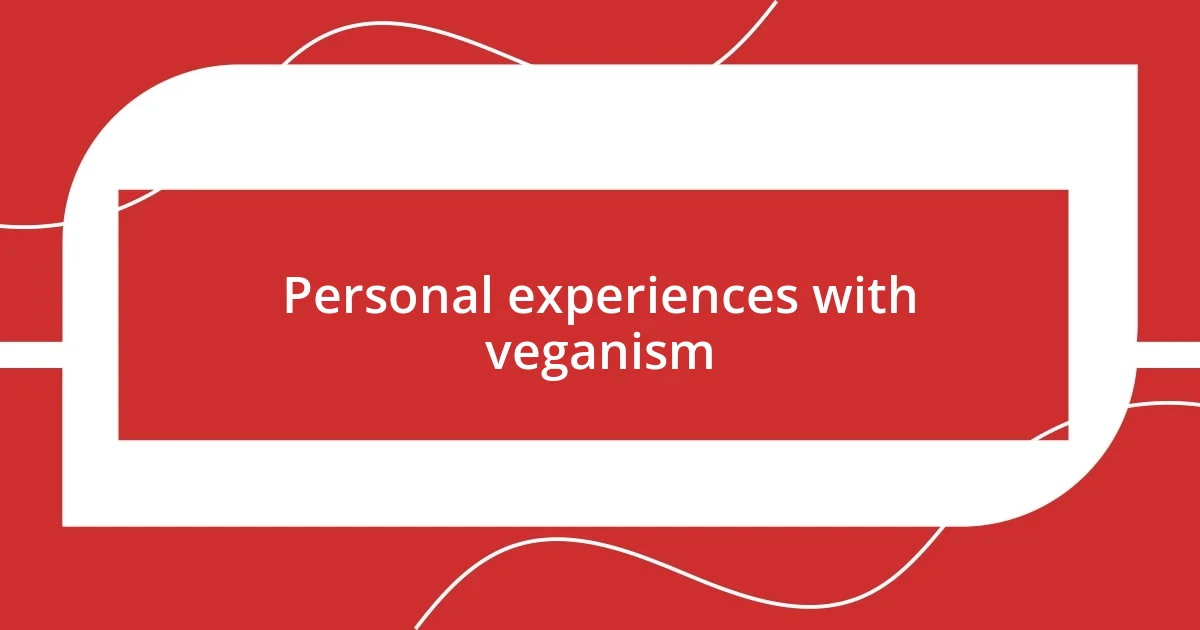
Personal experiences with veganism
I remember when I first transitioned to veganism, I was both excited and nervous. I was eager to explore new foods, but I quickly learned that not every meal was a hit. One day, feeling adventurous, I attempted a chickpea curry that smelled incredible, but I ended up using an excessive amount of spice. The dish was overwhelmingly hot, and I couldn’t help but laugh at myself; it felt like a lesson wrapped in an unforgettable meal. Have you ever had a culinary experiment that took an unexpected turn?
As I navigated my vegan journey, I experienced moments of both exhilaration and doubt. There were days when I felt like a superhero, full of energy, fueled by vibrant fruits and legumes. Conversely, I hit some lows after relying on quick, less nutritious options. I distinctly recall a particularly sluggish afternoon where I just couldn’t shake the fatigue. After that, I made a commitment to focus on whole foods and balanced meals. It was fascinating to see how my choices directly influenced my energy levels.
One of my favorite discoveries was how nourishing soups could uplift not just my body but also my spirit. There’s something soothing about a warm, hearty lentil soup that wraps you in comfort. I often find myself making a big batch to share with friends, not only because it tasted amazing but also because it sparked conversations about our nutritional choices. Have you ever noticed how sharing food can lead to deeper connections? It’s in those moments that I realized my vegan journey wasn’t just about what I ate, but about how it brought me closer to the people around me.










